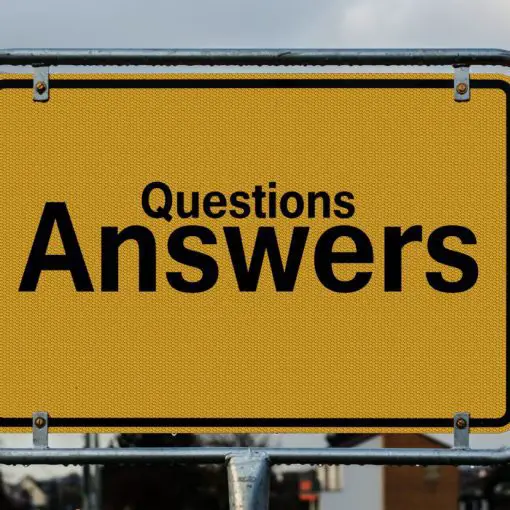Morse code is a straightforward way to send communications back and forth over long distances. Yet, given that it’s been around for over 150 years, many assume it’s obsolete and no longer helpful. As many in the ham radio community will tell you, that couldn’t be further from the truth.
Morse code and ham radio have a shared history that many people aren’t aware of. Up until the 1990s, operators had to learn Morse code to get their radio license. That’s because before voice transmission, Morse code was the only way to communicate over amateur radio frequencies. It remains relevant today because it has minimal requirements and is still widely understood.
As you read through this article, you’ll first get a clearer understanding of what Morse code is and how it relates to ham radio. Then, you’ll discover several reasons why it remains relevant today.
What Is Morse Code?
First and foremost, it’s essential to understand what Morse code is and how it works clearly. That’s the only way you can fully understand its relevance despite being over 100 years old.
Given that Morse code has been around for so long, it has been depicted many times in popular media like movies and TV shows. But unfortunately, not all those depictions are accurate, which could lead to misunderstandings about this timeless code system.
So, let’s get on the same page about everything.
Morse code refers to a method of sending coded messages through different communication technologies, including ham radio.
The reason it’s referred to as a ‘code’ is because alphabets and numbers are encoded in a standardized way that’s understood universally by senders and receivers.
The code itself represents alphabets and numbers using an arrangement of dashes, dots, and spaces. In other words, you’ll have to combine those dashes, dots, and spaces differently for each character you want to communicate.
The Morse code system was invented somewhere in the 1830s by a man named Samuel Morse. That was done before telephones were created and messages needed to be sent over long distances.
At the time, electrical telegraphy was the only available way of doing that. It involved sending electrical pulses over long distances to communicate a message. The Morse code system was designed for use with that technology, so the code consists of dashes, dots, and spaces to represent alphabets and numbers.
Do Ham Radio Operators Use Morse Code?
Yes, ham radio operators use Morse code. But, more than that, Morse code and amateur radio have shared a close relationship since the beginning.
If you look into the history of amateur radio, you’ll find that the equipment people had couldn’t transmit a person’s voice until 1920. That’s because voice-capable transmitters weren’t common until that point in time.
Instead, the only way to communicate over amateur radio was to use Morse code and transmit the beeps and pulses described in the previous section.
Considering all of the above, it should be no surprise that understanding Morse code was a requirement to get an amateur radio license. That was true in the United States, the United Kingdom, and elsewhere.
However, there came the point when amateur radio enthusiasts no longer had to master Morse code to get a license.
In the United States, the Federal Communications Commission (FCC) removed the Morse code requirement for licensing in 1991. Eventually, the United Kingdom did the same thing and removed that requirement in 2003.
Despite it no longer being a requirement, plenty in the ham radio community voluntarily learn how to use Morse code. Ask around, and you’ll see that most people still find Morse code relevant for a ham radio operator, if not necessary.
Read the following section to find out why.
What Are The Benefits Of Learning Morse Code Today?
Even though there are no licensing requirements for learning Morse code, the system is undoubtedly still relevant to ham radio enthusiasts.
That’s because learning and using Morse code offers you plenty of benefits, such as the following:
1. Beacon And Repeater Identification
First and foremost, you must understand that beacons and repeaters identify themselves using Morse code. So, understanding the code will give you an upper hand by being able to understand anything that you hear coming from them.
2. Minimal Requirements
Another benefit of learning Morse code is that it requires little to transmit and receive. That makes Morse code incredibly helpful for communicating over ham radio in challenging situations.
More specifically, Morse code requires a lot less power and can work perfectly with less effective antennas.
As a result, two radio operators can send and receive critical messages despite limitations like damaged equipment or a lack of power supply.
3. Universally Understood
Morse code is also universal. That’s because the code is understood the same by anyone who learns it, regardless of where they’re located.
In other words, what you hear is precisely what you get. There is no chance that what you’re hearing means something else unless the person transmitting has made an error or misunderstood the code representing what they want to say to you.
4. No Listening Issues
Voice communication can be pretty challenging when you can’t hear what the other person is saying. For example, there might be signal interference that disrupts communication. Besides, operators might have different pronunciations or accents that make it impossible to understand despite speaking the same language.
Morse code is a way to bypass those issues. As you read earlier, the code only involves beeping sounds representing dots, spaces, and dashes. Transmitting those sounds is as straightforward as hearing them, making the message crystal clear on the other side.
Lastly, Morse code is still relevant to the ham radio community today because it’s a shared challenge. So when you learn Morse code and gradually master it, you’ll have something else in common with plenty of other operators in the community.
It’s pretty rewarding when transmitting Morse code to another operator who understands what you’re saying to them and can respond in kind.
On top of that, establishing yourself as someone who understands Morse code can open up mentorship opportunities. Others in your local ham radio community might come to you for guidance when they decide to learn Morse code.
Final Thoughts
Morse code is still highly relevant to the amateur radio community despite its age. Sure, there’s a learning curve involved in understanding and using Morse code, but it’s an enriching challenge to pursue.
More importantly, Morse code is handy in challenging situations. For example, the code enables you to transmit messages over ham radio frequencies with minimal power and with less effective antennas.
References
Re: Morse code benefits, how to learn
https://www.indeed.com/career-advice/career-development/how-to-learn-morse-code
Re: Morse code and ham radio history
Re: Morse code used to be a requirement until 2003. Benefits: morse code gets through, and etc
Re: Amateur Radio and Morse





